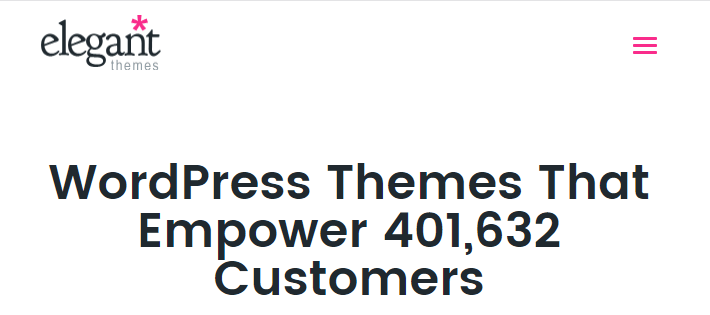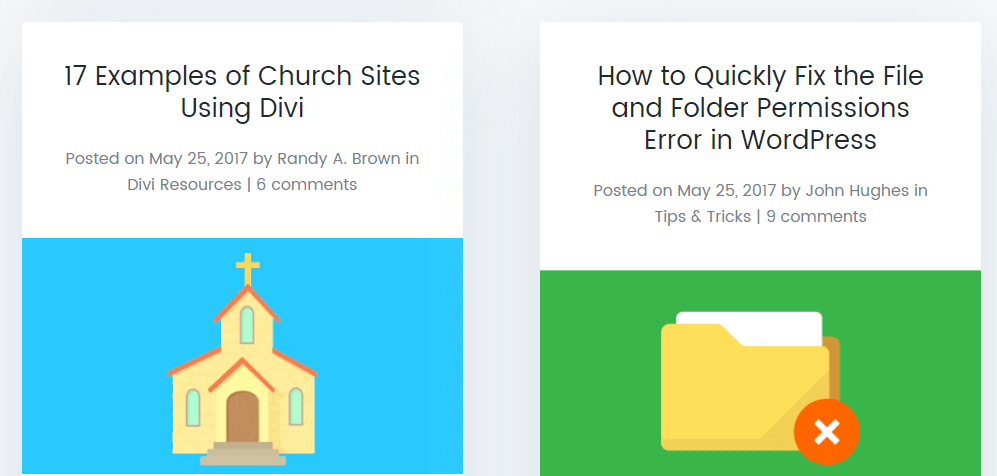Copyrights, trademarks, and patents are somewhat complex topics. However, they each can have an effect on the way you run your WordPress site, which makes understanding their basics important.
The good news is you don’t need to hit the law books to figure out how each of these elements impacts you. In this article, we’re going to discuss the difference between copyrights, trademarks, and patents, and how WordPress is licensed. Then, we’ll talk about what elements of your site you need to protect and how to do it. Let’s get to work!
What’s the Difference Between Copyrights, Trademarks, and Patents?
Before we dive into how these elements affect your WordPress site, it’s important to know what their differences are. For now, let’s keep things simple and talk about them one by one:
- Copyright. Think of this as proof of ownership over the content you create. For example, if you’re running a WordPress website you can copyright your graphics and content (and we’ll talk more about this later on). On top of proving you’re the owner of your content, copyrights also govern how others can reproduce, imitate, and distribute it.
- Trademark. Unlike copyrights, trademarking isn’t about protecting your content, it’s all about your brand. Using this method enables you to claim your website’s name, domain, logo, and any other symbols representing your brand. That way, other people can’t use them to deceive your visitors and customers without breaking the law.
- Patents. This type of protection is reserved for unique business processes and technologies. However, you can’t patent a website as a whole (in the vast majority of cases).
Before moving on, let’s talk a bit more about patents. There’s a common misconception that almost any idea can be patented, but it’s not quite true. In fact, it’s likely you won’t be able to obtain a patent for your product unless you can prove it’s unique (and non-obvious).
To put it simply, if you run a simple WordPress website, you probably don’t need to think about patents. That is unless you’re offering a service you can prove is unique and innovative. If you just want to protect your intellectual property, copyrights and patents are the way to go.
How is WordPress Licensed (And How Does It Affect You)?
Most of you probably know that WordPress is open-source software. What you might not know is that it’s available to the public under the GNU General Public License (GPL). Let’s break down what this means:
- You’re free to run the platform for any purpose you want.
- You can have access to the platform’s code and modify it to suit your own needs.
- It can be freely redistributed. This means you can share the platform with other users if you want, instead of having them download it directly from the developers.
- You can also redistribute the platform including any modifications you’ve made to it.
This last point is particularly important for you as a WordPress user because it also covers ‘derivative’ works. In WordPress’ case, both plugins and themes fall into this category. It means you can create either of those two options for any purpose, and distribute them without having to pay the original developers.
Plus, if you’re a developer, you can also charge any price you want for your plugins and themes. The only caveat is that they must be made available under the GPL license as well without any additional restrictions. This is where things get a bit confusing if you’re a WordPress user or developer, so let’s discuss what this means for you:
- You only need to adopt the GPL license if you plan to distribute your plugins or themes. If they’re meant for private use or a particular client, that doesn’t apply to you.
- If you want to, you’re free to charge extra for technical support and other similar tasks. That’s why you often see plugins and themes available for purchase under limited-time licenses. In that case, you’re not just selling your work, but also your expertise.
- You can sell your work. However, according to the GPL, once someone purchases it they can also distribute and charge for it.
If you’re a developer, you might be worried about that last point we covered, so let’s elaborate using an example. If you create and distribute a WordPress theme under the GPL (which it must be), anyone who purchases it can legally access its ‘source code’, modify it, and redistribute it. In WordPress’ case, that refers to its core PHP files.
What they can’t do is copy any other part of your work, including bundled graphics, and CSS customizations. That means they can’t just take your theme and resell it under the same name to pocket the profits. In that case, they would be breaching its license and be open to legal action.
Do You Need to Copyright Your WordPress Website?

Copyright notices can help you dissuade would-be copycats from stealing your content.
Technically, you don’t need to copyright your WordPress website – at least not under US law. That’s because websites are considered ‘original work’, and they’re copyrighted from the moment they go live. The same law applies to other types of creative work as long as you document them in a way you can prove, such as writing them down or recording them.
The question is, if you don’t need to copyright your site, why do so many pages on the web bother to include notices to that effect? A lot of them do so as a deterrent to would-be copycats, while others may include them because they actually went to the trouble of registering their copyright.
While a copyright isn’t strictly necessary for every site, it can come in handy. At least in the US, registering this proof of ownership makes it much easier to prosecute anyone copying it. For other countries, the situation could get muddier – so we recommend doing some research with an expert in your particular nation’s law.
What Elements of Your WordPress Website Should You Protect?
We’ve already talked about copyrighting your site, but that isn’t the only thing you can do to keep it safe from a legal standpoint. Let’s check out some of the other elements you can protect and how to do it.
Your Logo, Site Name, and Slogan
These three elements are a big part of what makes up your overall brand, which makes them perfect candidates for trademarking.

The Elegant Themes logo is a good example of an element that should use a trademark.
To register a trademark in the US, you’ll have to go through the United States Patent and Trademark Office (USPTO). To apply for one, you’ll need to submit a representation of your mark that includes its name and any designs associated with it (such as logos and other related icons).
However, keep in mind that the USPTO enables you to register each of these components separately if you want to do it. This means you can have a trademark for your logo, another for your site name (and URL), and one for your slogan. Doing this provides you with more protection if you decide to mix those site elements.
Keep in mind, registering a trademark with the USPTO isn’t free so you should only do it once your site gains a little traction and you’re sure the investment is worth it.
Your Written Content and Images
We’ve already talked earlier about copyrighting, so let’s get to the practicalities. Copyrighting your website protects both your written content and your images by making it easier for you to bring legal action against copycats.

Your content is your site’s most important asset, and copyrighting it can help you protect it.
The only issue is that while copyright terms can be quite long, they don’t necessarily cover all of your future content. In fact in most cases, they only establish ownership for your website at the moment you register a copyright. That means you’ll need to update your registration periodically if you want to protect your content as strongly as possible.
To do this on American soil, you’ll need to deal with the U.S. Copyright Office. Just as with trademarking, they’ll charge you a fee to register your copyright, so keep that in mind.
If you want to be practical, we recommend waiting until you have a sizable library of content before copyrighting your website. That way, you’ll get the most out of your investment, and in the meantime, you can still include a basic notice at the bottom of every page to dissuade copycats.
Conclusion
Copyrights, trademarks, and patents don’t need to be an obscure subject. In fact, understanding how they affect you and your WordPress website is fairly straightforward. Plus, it’s important to be aware of what you need to do to protect your content from intellectual theft.
Here’s how those three elements can impact your WordPress day to day operations:
- Copyrights: One of the best way to protect your written content and images.
- Trademarks: These are the way to go for protecting aspects of your site such as your logo and name.
- Patents: In most cases, you won’t need a patent for your site unless you’re selling a truly unique service or application.
Do you have any questions about copyrights, trademarks, and patents related to WordPress? Ask away in the comments section below!
Article thumbnail image by venimo / shutterstock.com
The post Understanding Copyrights, Trademarks, & Patents (And How They Affect Your WordPress Business) appeared first on Elegant Themes Blog.
